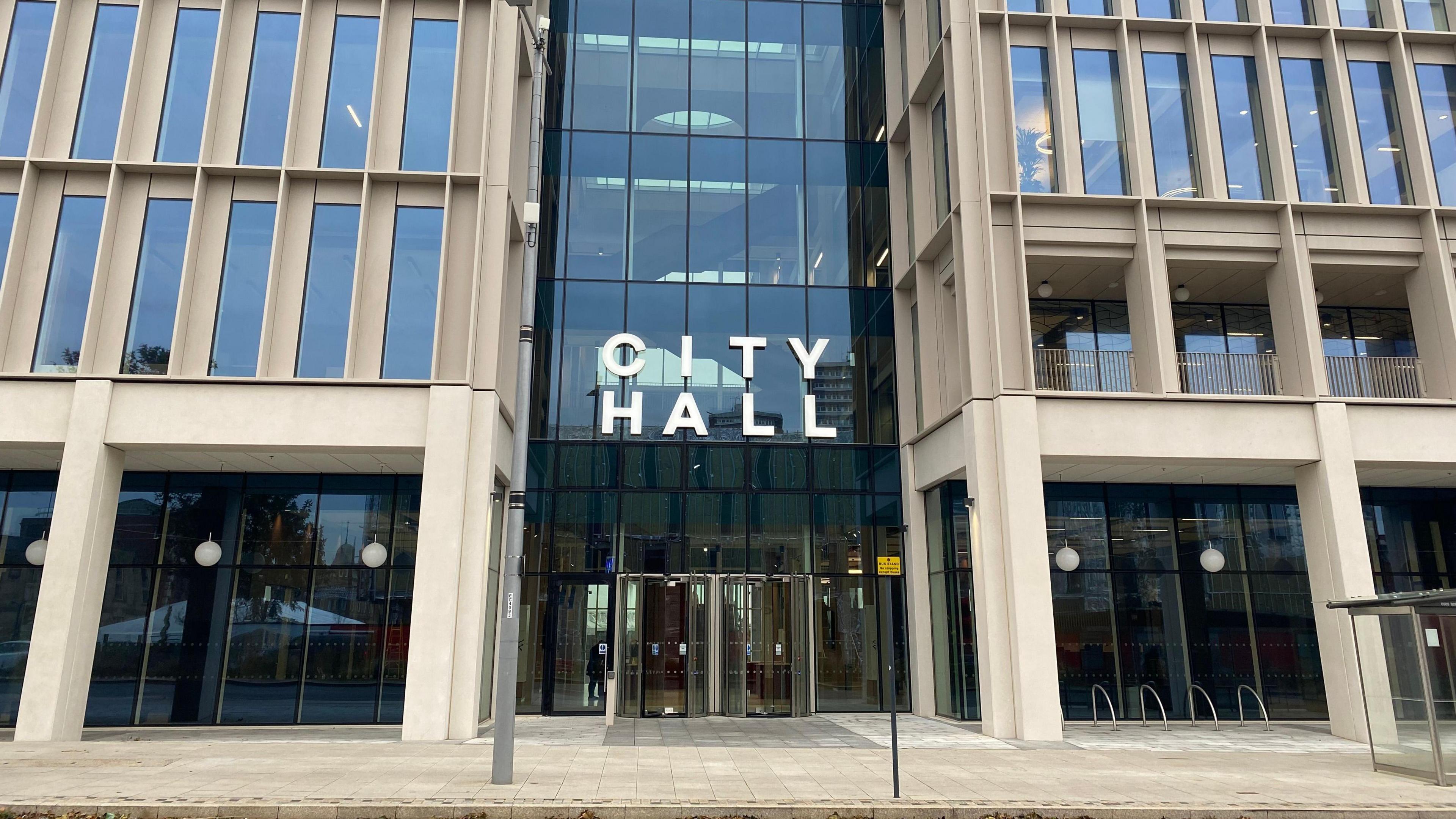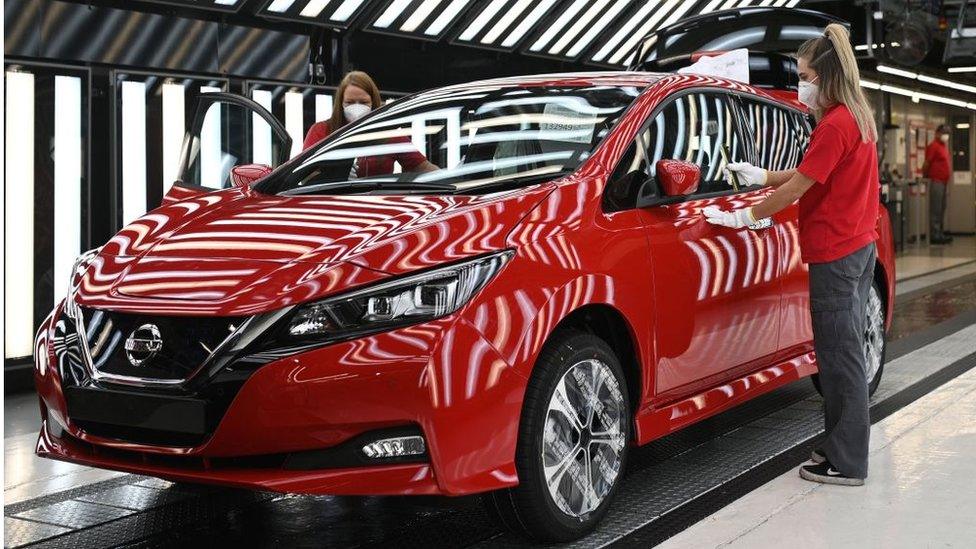Council approves battery gigafactory plans

Sunderland City Council approved the plans on Monday
- Published
Plans for a new electric vehicle battery gigafactory have been approved.
Company AESC UK, which is Nissan’s battery partner, submitted proposals for land on the International Advanced Manufacturing Park (IAMP) in Washington, Sunderland, earlier this year.
The city council gave the plans the go ahead on Monday, despite part of the development being within the green belt.
Because of its size and location, the application has been referred to the Secretary of State for a final decision.
AESC UK already has one plant in Sunderland and a second one is being built, the Local Democracy Reporting Service said.
According to planning documents, the new factory could produce 12 GWh of batteries per year.
It is partially located within the green belt, but it was argued "very special circumstances" justified the plans.
These included the need for the facility, lack of "suitable alternative sites" and the "very special socio-economic and environmental benefits".
To offset the harm to the green belt, applicants agreed to provide "significant on-site habitat enhancement", as well as off-site mitigation in other parts of the city
The city council's ecologist had no objection to the development.
'Has to happen'
The scheme represents £500m of "initial capital investment" and will support thousands of jobs during the construction period, according to planners.
The site will also employ more than 1,000 people in Sunderland, and create a further 800 jobs.
Councillor Stephen Foster welcomed the application and said it was "much-needed in this area".
Councillor Martin Haswell added the development would be "really useful".
“I think the loss of the green belt space is really disappointing but unfortunately it has to happen," he said.
Council planning documents added once the plants were operational, AESC would "have capacity to build batteries for 10 times as many EVs a year than at present".
Follow BBC Sunderland on X, external, Facebook, external, Nextdoor and Instagram, external. Send your story ideas to northeastandcumbria@bbc.co.uk.
Related topics
More stories from across the BBC
- Published24 November 2023
